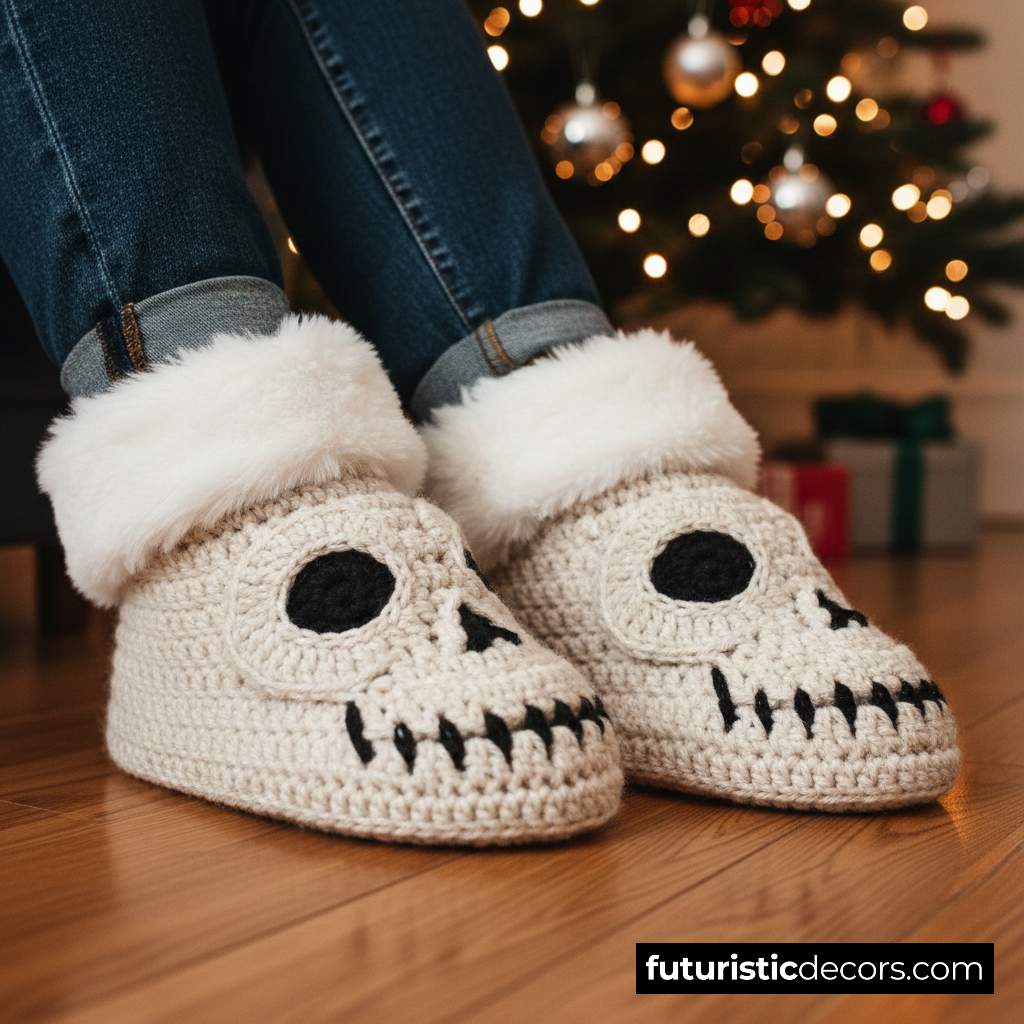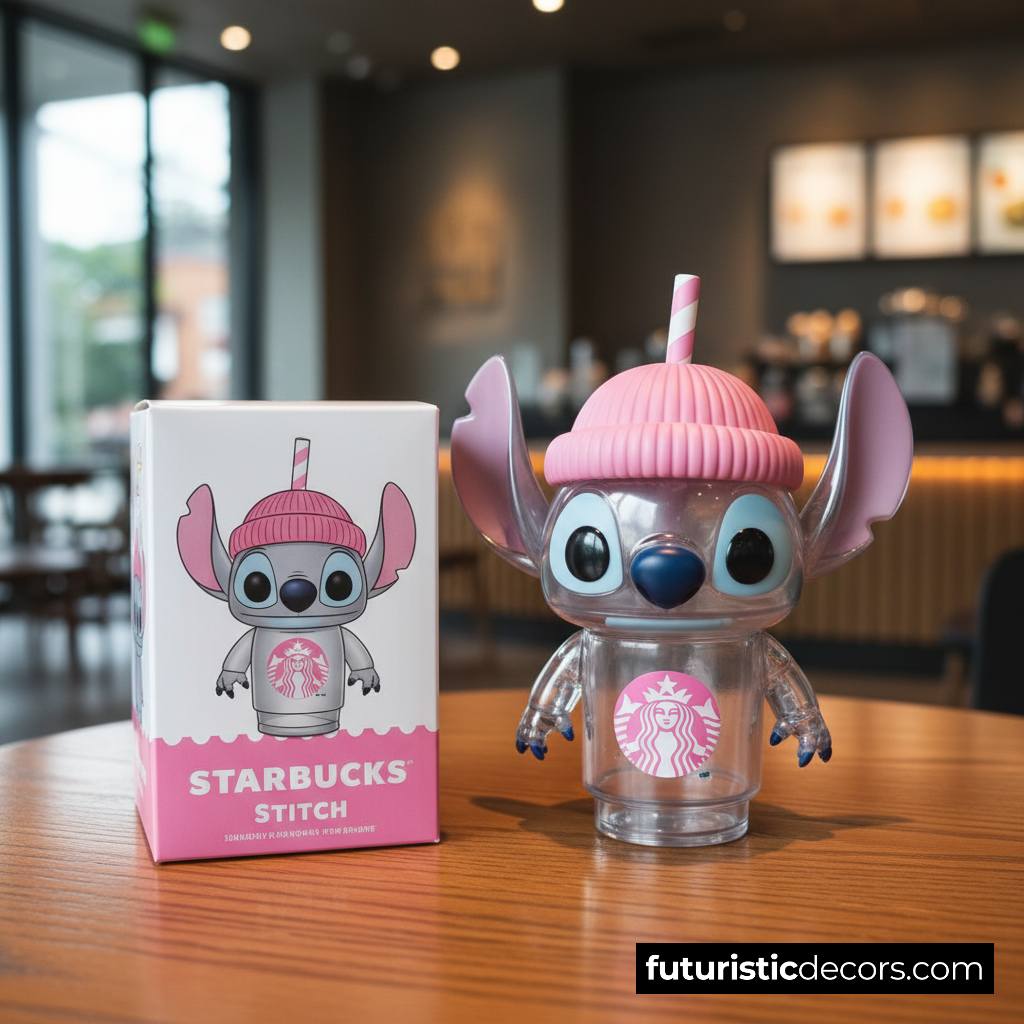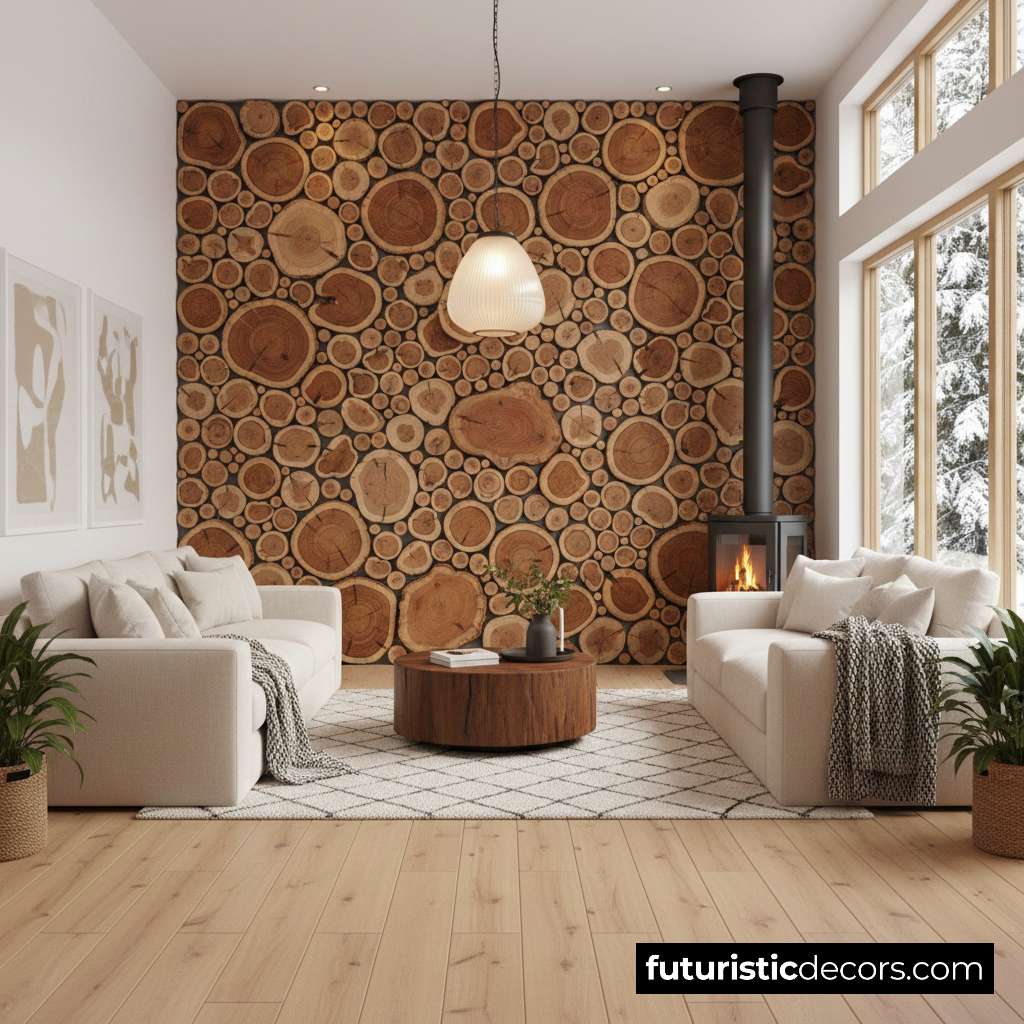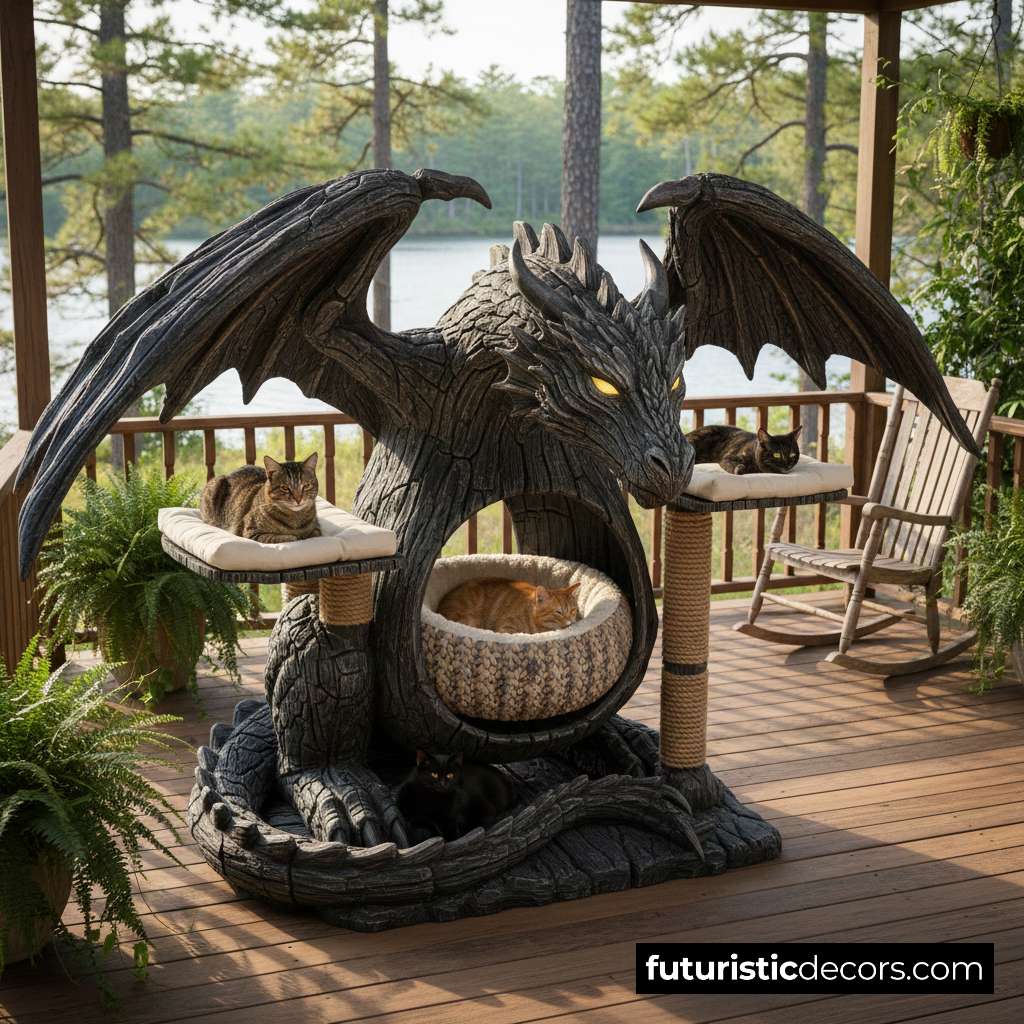In the ever-evolving world of footwear design, few trends have captured the imagination quite like Crocodile Shaped Sneakers. Combining high-fashion aesthetics with innovative craftsmanship, these statement pieces transcend mere utility to become wearable art. From runway debates to street-style phenomenon, the allure of footwear that mimics the texture and silhouette of crocodile skin has surged in recent years. Yet, beneath the surface of this trend lies a pivotal question for consumers, designers, and ethical advocates alike: should you opt for faux leather renditions or invest in sneakers featuring ultra-realistic textures that mirror genuine reptile hide?
This comprehensive guide delves into the world of Crocodile Shaped Sneakers, examining the materials, manufacturing techniques, performance characteristics, ethical considerations, and styling possibilities that define the faux leather versus realistic texture debate. Whether you’re a fashion-forward sneakerhead, an eco-conscious shopper, or simply curious about the craftsmanship behind these unique kicks, this article will equip you with the insights needed to make an informed choice. We’ll explore:
- The rise and cultural impact of crocodile-inspired footwear
- Design elements that distinguish faux from realistic textures
- Material science behind high-quality faux leather
- Techniques for achieving astonishingly lifelike crocodile grain
- Durability, comfort, and performance comparisons
- Environmental and ethical implications in production
- Price point analysis and value considerations
- Styling tips to integrate crocodile-themed sneakers into your wardrobe
- Care, maintenance, and recommended retailers
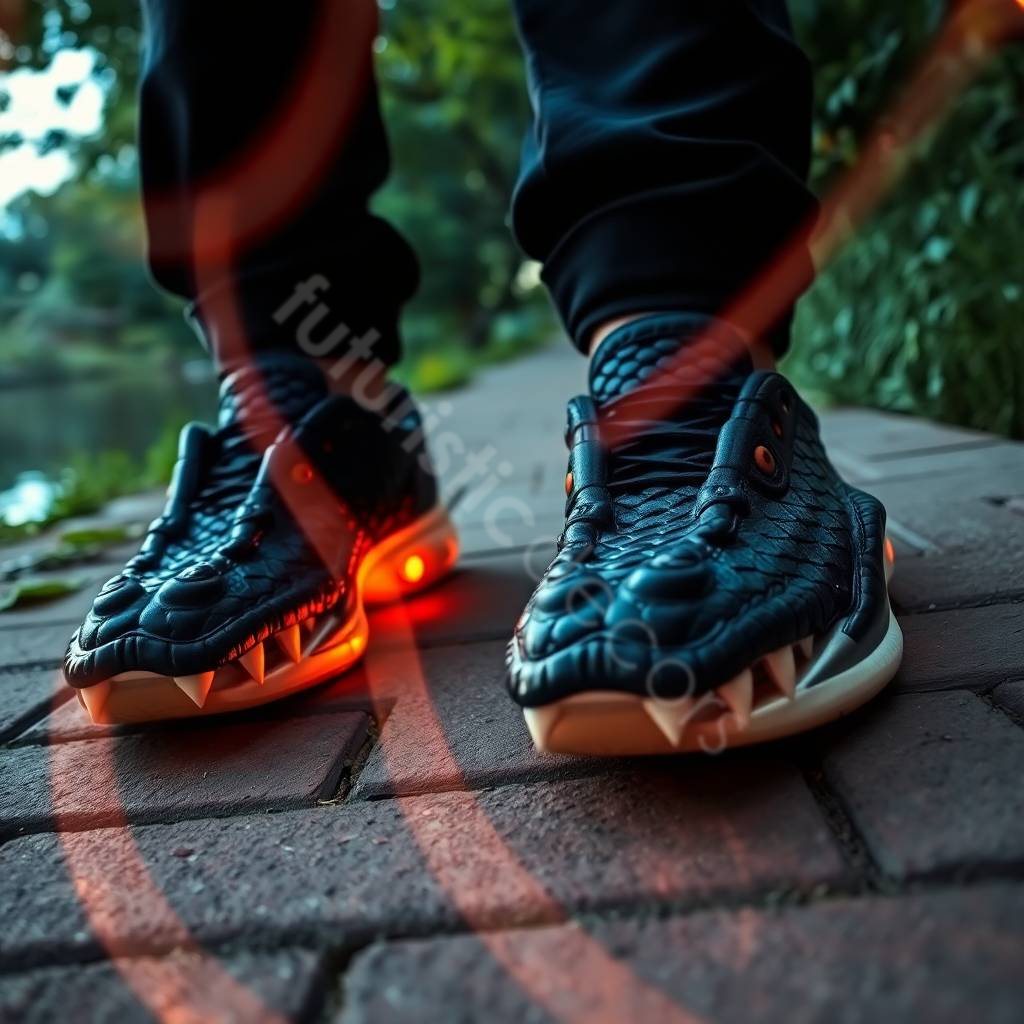
Let’s embark on a deep dive into the world of Crocodile Shaped Sneakers and discover which approach—faux leather or realistic textures—best aligns with your personal style, budget, and values.
1. The Rise of Crocodile Shaped Sneakers
Over the past decade, sneaker culture has evolved from athletic necessity to a global phenomenon encompassing art, self-expression, and technological innovation. The desire for unique, conversation-starting designs has spurred collaborations between luxury houses, independent designers, and sportswear giants. Within this landscape, Crocodile Shaped Sneakers emerged as a subgenre that marries the primal aesthetic appeal of reptilian skin with modern sneaker engineering.
1.1 Historical Influences
Crocodile leather has long symbolized prestige and exclusivity, appearing in high-end products ranging from handbags to watch straps. Iconic fashion houses like Hermès and Gucci have relied on real crocodile hide to convey luxury. As streetwear democratized style hierarchies, designers began to reinterpret exotic materials in approachable forms—enter the crocodile-inspired sneaker.
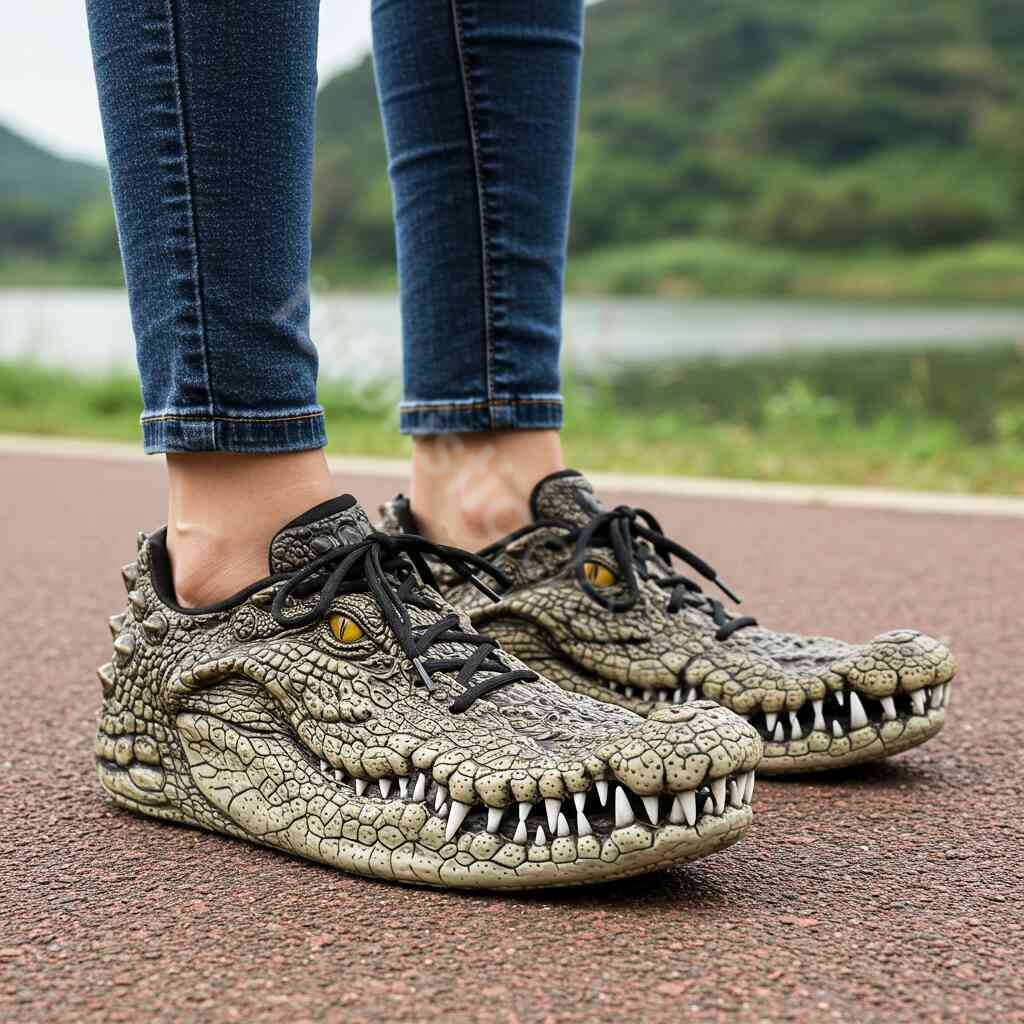
Early adopters in the mid-2010s experimented with embossed leather panels and scale-like patterning, but consumption was limited by the high cost and ethical concerns associated with genuine croc hide. Advances in synthetic materials later opened new doors, allowing designers to replicate complex textures without the environmental and moral baggage.
1.2 Cultural Adoption
Crocodile-motif sneakers first gained traction among fashion insiders and durability enthusiasts. Limited-edition drops featuring scale-pattern uppers sold out in minutes, driving resell markets and fueling buzz on social media. Celebrities and influencers sporting these bold designs further cemented their status, with street-style photographers capturing every angle at fashion weeks from Paris to Tokyo.
More recently, mainstream brands have introduced budget-friendly faux leather lines, broadening accessibility. Today, Crocodile Shaped Sneakers appear in a spectrum of price points—from artisanal hand-crafted pairs to mass-produced editions—reflecting their crossover appeal between luxury and streetwear.
2. Design Elements and Aesthetic Appeal: Crocodile Shaped Sneakers
When evaluating Crocodile Shaped Sneakers, it’s crucial to dissect the design features that create the illusion of reptilian skin. Whether rendered in synthetic or more naturalistic materials, the most compelling models share common stylistic cues.
2.1 Scale Pattern and Embossing
Scale Size & Shape: Real crocodile hide has distinct scale patterns—large, irregular scales interspersed with smaller ones. High-end designs mimic this variability, with embossing molds calibrated to reproduce authentic scale shapes. Faux leather options often employ uniform, repeating patterns that sacrifice nuance for manufacturing efficiency.
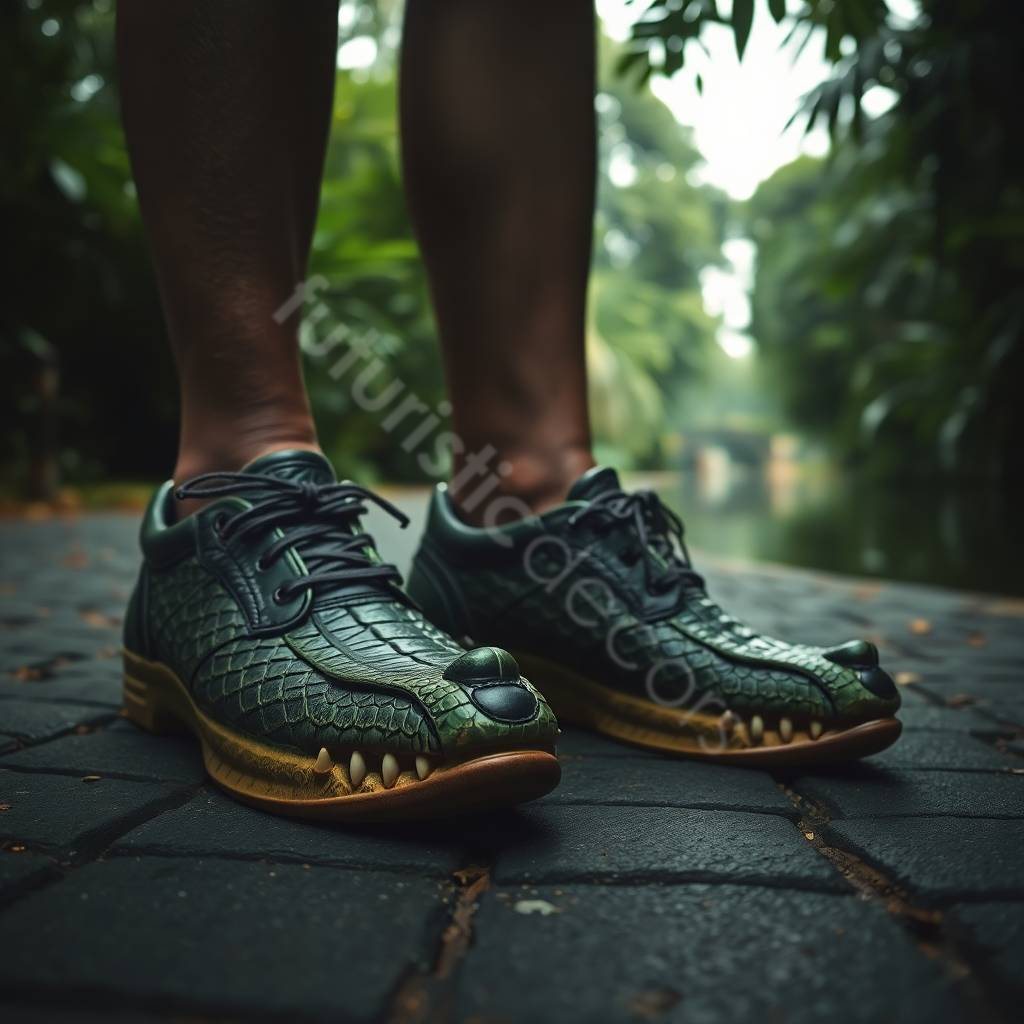
Three-Dimensional Depth: Achieving convincing depth requires multi-layer embossing techniques. Premium sneakers incorporate raised and recessed areas, creating shadows and highlights that shift with movement. Lower-cost faux versions tend to feature shallow, flat embossing that reads more like a printed texture.
2.2 Finish and Sheen
Matte vs. Glossy: Genuine crocodile skin exhibits a subtle sheen that varies across different body regions. Top-tier sneakers replicate this effect using specialized coatings and polishing processes. Faux leather can approximate the look, but gloss levels often appear overly uniform or plasticky.
Color Nuance: Natural croc hide displays color gradients—from deep emerald undertones to lighter, almost metallic highlights. Realistic-texture models leverage hand-dyeing or multi-stage finishing to capture this complexity. Faux options typically stick to solid, single-tone colorways (e.g., uniform black or brown), limiting visual depth.
2.3 Structural Design
Scale Placement: Some designers place larger scales at the toe box or sides to accentuate key areas, while scaling down towards the heel for ergonomic flexibility. Replicating this anatomical placement demands careful cutting and patterning, more common in realistic builds than faux mass-market sneakers.
Seam Integration: Seam placement can disrupt scale continuity. High-end models strategically position seams along natural scale boundaries or employ hidden stitching, whereas faux versions may have obvious panel joints that break the illusion.
By understanding these design fundamentals, enthusiasts can better appreciate the craftsmanship of premium Crocodile Shaped Sneakers and recognize shortcuts taken in more affordable faux leather iterations.
3. Faux Leather Variants: Material Science and Production
Faux leather—also known as synthetic leather or vegan leather—has advanced significantly, offering ethical alternatives to animal-derived materials. Yet the quality spectrum is vast, ranging from thin PU films to multi-layer composite skins.
3.1 Composition of Faux Leather
Polyurethane (PU) Leather: Composed of a fabric base coated with multiple layers of polyurethane, PU leather is breathable and flexible. Top-quality PU can mimic the softness and grain detail of genuine skin, though longevity may suffer under heavy abrasion.
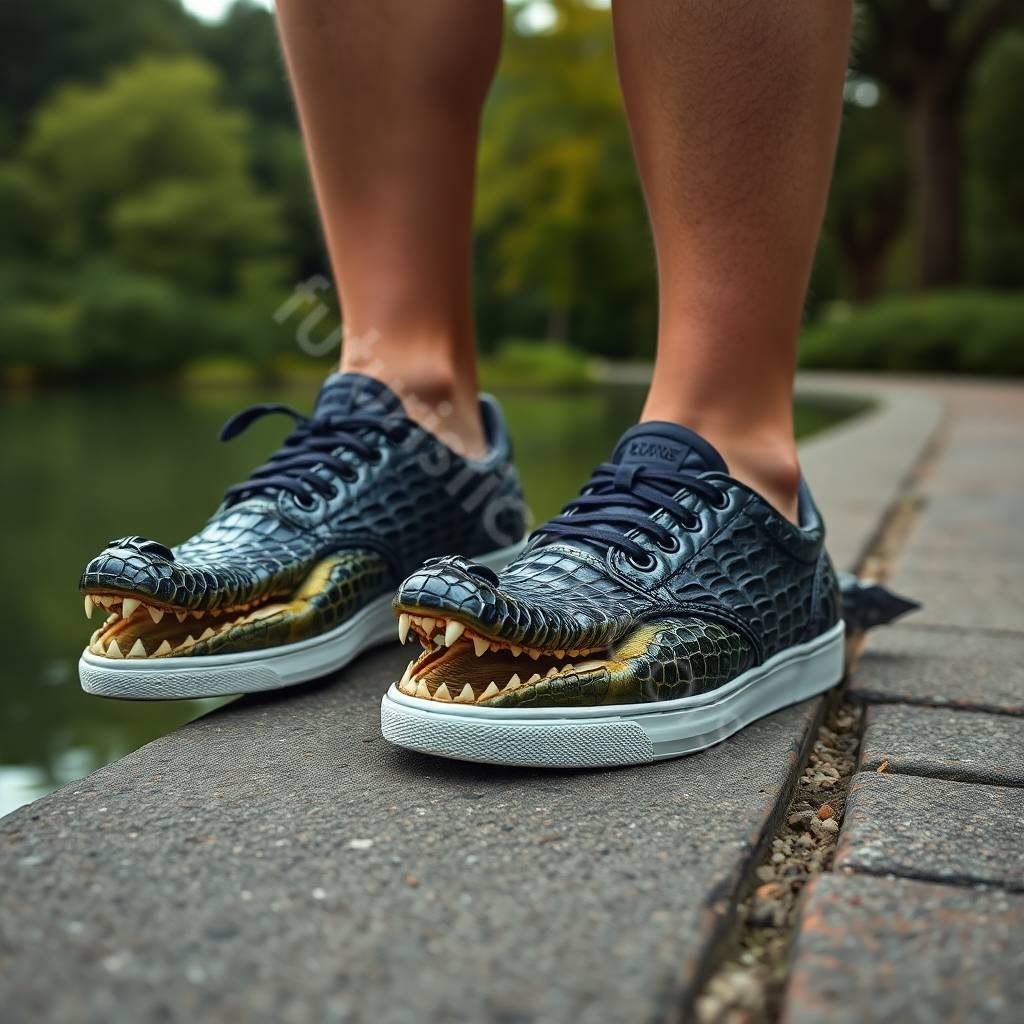
Polyvinyl Chloride (PVC) Leather: PVC-coated fabrics are more rigid and water-resistant but less breathable. They tend to stiffen over time and discolor if exposed to heat or UV.
Bio-Based and Plant-Derived: Emerging alternatives incorporate plant oils, cork, or even pineapple fibers (Piñatex). These sustainable variants still grapple with matching the durability and fine embossing required for convincing crocodile scale textures.
3.2 Manufacturing Techniques
Embossing and Heat Pressing: Faux leather panels are stamped with scale patterns using heated rollers or plates. Higher pressure and precise temperature control yield cleaner, sharper scale impressions.
Surface Coatings: To emulate the sheen and protective qualities of real hide, manufacturers apply lacquer or UV-cured coatings. These can enhance scratch resistance but may also add plastic-like stiffness.
Layer Bonding: Premium PU leathers use multi-layer bonding to reinforce durability—combining a high-denier textile backing, a foamed mid-layer for padding, and a fine-grain top layer for texture detail.
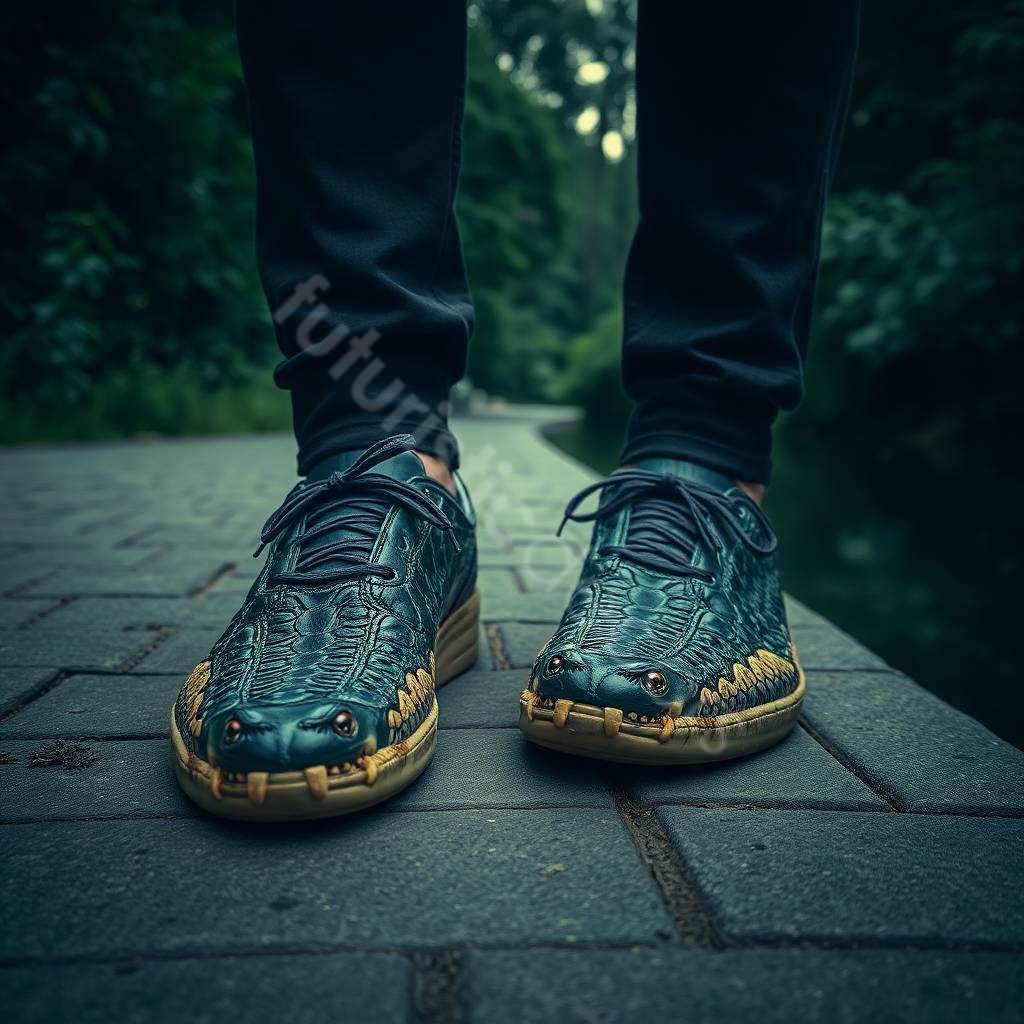
3.3 Advantages of Faux Leather Sneakers
Cost Efficiency: Faux leather models can retail at a fraction of the cost of real-hide designs, making them accessible to a broader audience.
Ethical Appeal: Vegan and cruelty-free credentials resonate with consumers prioritizing animal welfare.
Color Versatility: Synthetic materials accept a wider spectrum of dyes, enabling bold, non-traditional colorways alongside classic neutrals.
Lightweight Construction: Modern PU and plant-based leathers can be lighter than tanned hide, improving comfort and reducing fatigue.
However, these benefits come with trade-offs in authenticity and long-term performance, as explored in subsequent sections.
4. Achieving Realistic Textures: Crafting Convincing Crocodile Grain
For purists and high-fashion aficionados, nothing beats the tactile depth and visual complexity of a well-executed realistic texture. Artisans use advanced techniques—some dating back centuries—to produce croc-inspired sneakers that blur the line between synthetic and organic.
4.1 Embossing Molds and Precision Tooling
At the heart of realistic embossing lies the mold itself. Master craftsmen sculpt steel plates or hardened resin molds based on high-resolution scans of genuine crocodile hide. These molds:
Capture Scale Variability: Micro-variations in scale size, shape, and orientation create authenticity.
Produce Multi-Level Depth: Alternating recessed and raised areas replicate the natural curvature of scales.
Allow Custom Patterns: Designers can adjust mold segments to shift scale arrangements for exclusive or limited-edition releases.
4.2 Material Selection for Texture Retention
To maintain embossing integrity over time, realistic-texture sneakers often rely on full-grain or corrected-grain leathers rather than synthetics. Enhanced with proprietary treatments, these leathers:
Resist Wear: High-tensile natural fibers withstand repeated flexing without cracking.
Age Gracefully: Genuine hides develop patina, deepening color and accentuating scale relief.
Offer Enhanced Breathability: Unlike closed-cell synthetics, natural skins allow moisture exchange, improving comfort.
Some hybrid designs layer a thin genuine leather topcoat over synthetic backing to balance cost, performance, and authenticity.
4.3 Hand-Finishing and Detailing
True craftsmanship emerges in the finishing process:
Hand-Painting and Staining: Artisans selectively apply dyes to highlight individual scales, creating lifelike gradients.
Buffing and Polishing: Multiple polishing stages enhance depth and create a soft, natural sheen.
Edge Coating: Sealing raw cut edges prevents fraying and water ingress, a hallmark of premium construction.
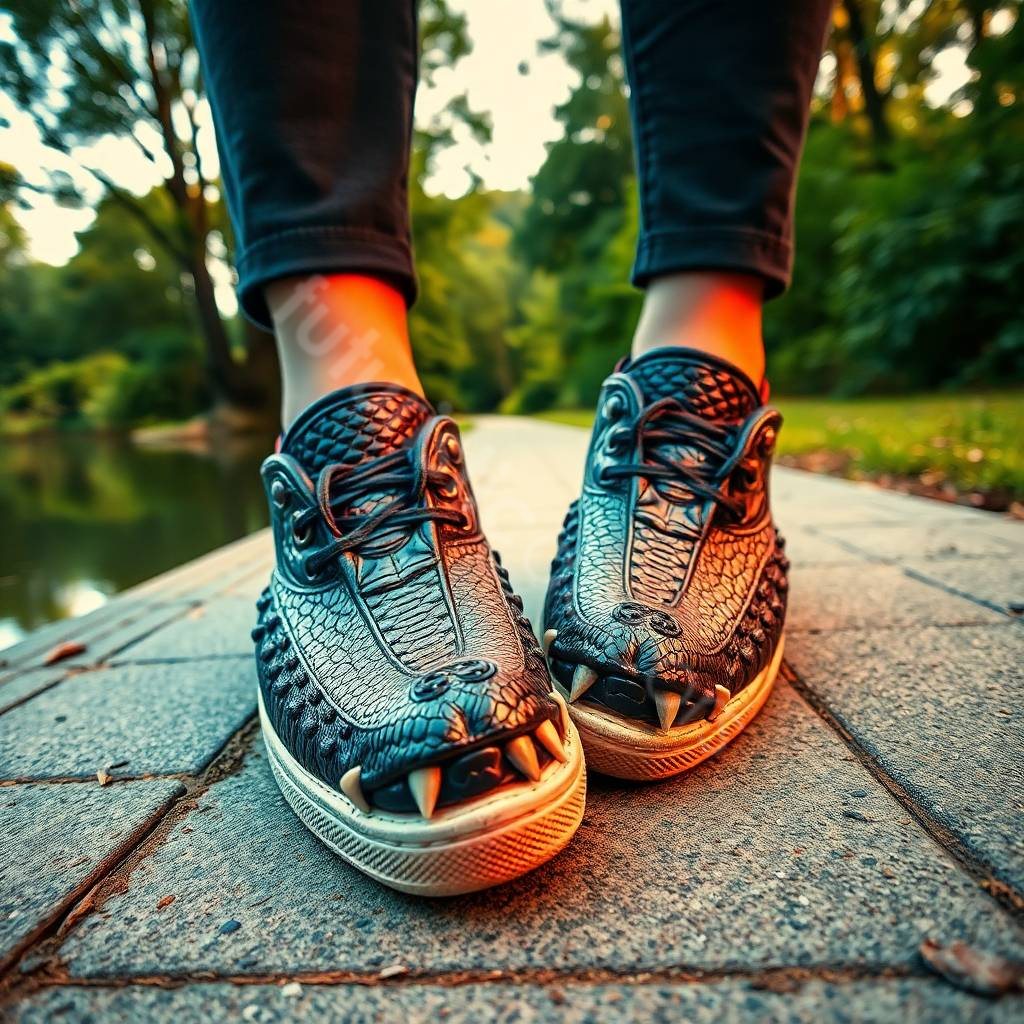
These labor-intensive steps justify higher price tags but deliver unrivaled realism.
5. Durability and Performance Comparison: Crocodile Shaped Sneakers
Beyond aesthetics, your sneaker’s day-to-day performance determines long-term satisfaction. Let’s compare the resilience and comfort of faux leather versus realistic-texture Crocodile Shaped Sneakers.
5.1 Abrasion Resistance
Faux Leather: Mid-range PU options can resist scuffs and surface scratches moderately well but may peel or crack along flex zones after prolonged use.
Realistic Textures: Full-grain leathers maintain scale definition under heavy wear. Corrected-grain hides with protective topcoats further enhance abrasion resistance.
5.2 Flexibility and Break-In Period
Faux Leather: Generally flexible from the first wear; minimal break-in but can feel plasticky and may lack proper give, impacting long-term comfort.
Realistic Textures: Stiffer initially but conform to the foot over several wears. Natural fibers adapt uniquely to the wearer’s gait.
5.3 Breathability and Moisture Management
Faux Leather: Low breathability can trap heat and sweat, potentially leading to odor and skin irritation in hot climates.
Realistic Textures: Porous leathers allow moisture to escape, regulating temperature and reducing odor buildup.
5.4 Weight Considerations
Faux Leather: Lightweight construction enhances agility but may compromise structural support.
Realistic Textures: Slightly heavier due to natural fiber density, offering more stability and a premium feel.
In practical terms, active users seeking performance-oriented sneakers may lean toward well-engineered faux options, while fashion-centric buyers and connoisseurs often prefer the longevity and sensory experience of realistic-texture designs.
6. Ethical and Environmental Considerations
Choosing between faux leather and realistic textures extends beyond fashion preferences, encompassing moral and ecological implications.
6.1 Animal Welfare and Vegan Credentials
Faux Leather: Promoted as cruelty-free, vegan-friendly footwear. However, the ethical narrative can be complicated by chemical-intensive production processes.
Realistic Textures: Genuine leather sources raise concerns about animal stewardship and farm practices. Premium brands increasingly partner with regulated crocodile farms adhering to conservation protocols.
6.2 Environmental Footprint
Faux Leather: PVC-based options carry high environmental costs due to toxic effluents, non-biodegradable waste, and microplastic shedding. PU alternatives are marginally better but still rely on petrochemicals.
Realistic Textures: Leather tanning traditionally uses heavy metals (chromium), though vegetable-tanned and low-impact methods are gaining traction. Responsible sourcing—such as upcycling byproducts from the food industry—can reduce waste.
6.3 Circularity and End-of-Life
Faux Leather: Limited recyclability; synthetic composites complicate material recovery. Disposal often results in long-term landfill presence.
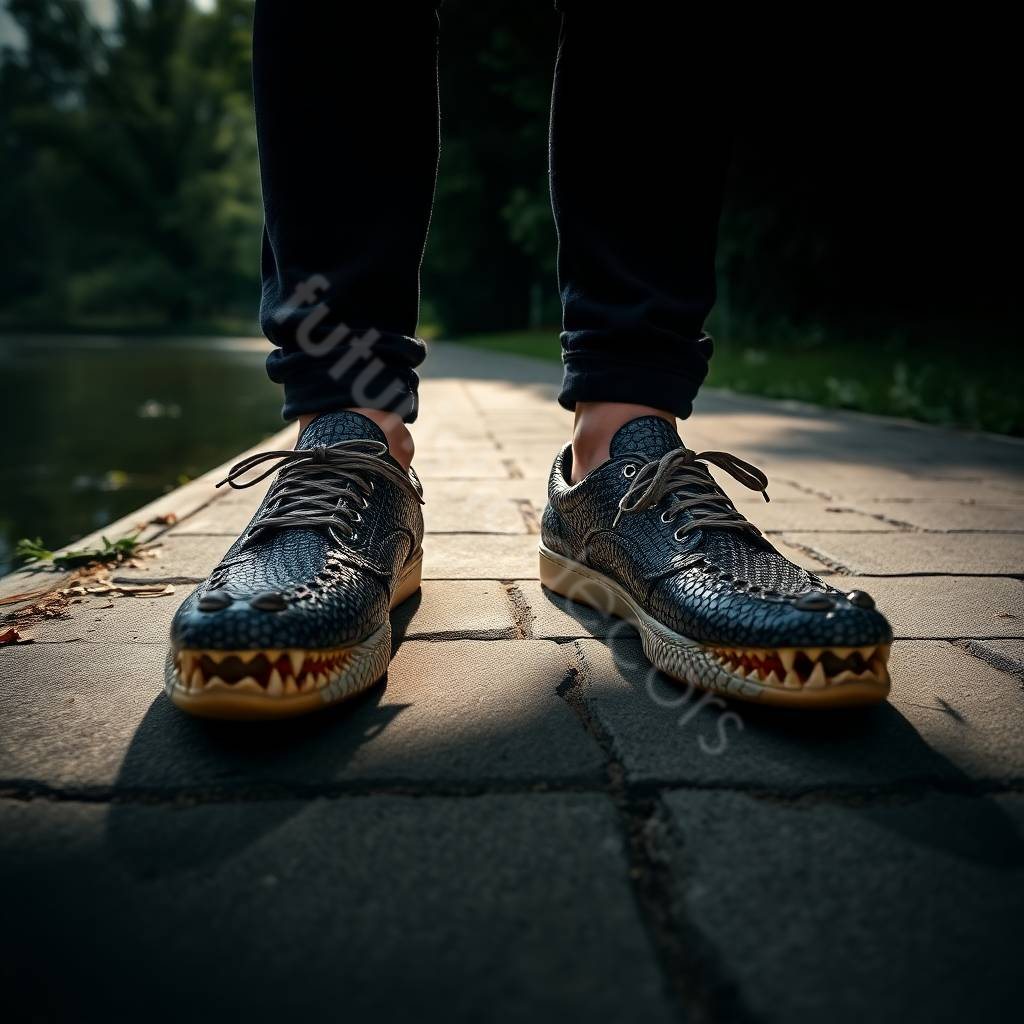
Realistic Textures: Biodegradable under proper conditions, though tanning chemicals can hinder decomposition. Leather scraps can be repurposed into accessories or insulation materials.
Consumers must weigh animal welfare against chemical pollution, and consider transparency from brands regarding sourcing and manufacturing standards.
7. Cost Comparison and Value Proposition
A critical factor for most buyers is price. Crocodile Shaped Sneakers span a vast spectrum—from sub-$100 faux leather pairs to handcrafted realistic-texture designs exceeding $1,000.
| Feature | Faux Leather Models | Realistic-Texture Models |
|---|---|---|
| Typical Price Range | $80–$250 | $400–$1,500+ |
| Manufacturing Complexity | Mass production | Small-batch artisanal |
| Longevity (Years) | 1–3 years moderate use | 5–10+ years with care |
| Resale Value | Negligible | Potentially high for limited editions |
| Maintenance Costs | Low | Moderate (specialized products) |
While faux options offer immediate affordability and trendy colorways, realistic-texture sneakers represent an investment—both in craftsmanship and long-term wear. Buyers seeking collectible value or heirloom-quality pieces often justify the premium, whereas trend-driven consumers may prefer rotating budget-friendly faux leather pairs.
8. Fashion and Styling Tips: Crocodile Shaped Sneakers
Integrating Crocodile Shaped Sneakers into your wardrobe can elevate everyday looks or serve as a focal point in curated ensembles. Here are styling ideas for both faux leather and realistic-texture variants.
8.1 Casual Street Style
Faux Leather Pairs: Pair with distressed denim, graphic tees, and oversized jackets. Bold colorways (emerald green, ruby red) add vibrancy to monochrome outfits.
Realistic Textures: Opt for neutral tones (black, chocolate brown) alongside tapered joggers and minimalist sweatshirts for a luxe-meets-leisure aesthetic.
8.2 Smart-Casual Attire
Faux Leather Pairs: Neutral faux whites or beiges complement chinos and button-down shirts. A subtle croc pattern introduces texture without overpowering the outfit.
Realistic Textures: Match dark-scale models with tailored wool trousers and cashmere sweaters. The refined sheen pairs seamlessly with blazers.
8.3 High-Fashion Statements
Faux Leather Pairs: Metallic finishes and neon hues offer avant-garde flair. Pair with unconventional silhouettes—wide-leg pants, asymmetrical coats—to channel street-couture energy.
Realistic Textures: Limited-edition collaborations often feature laser-etched logos and mixed-media overlays. Let your sneakers stand alone: pair with all-black ensembles and statement accessories.
8.4 Seasonal Considerations
Spring/Summer: Lighter faux leather options breath better; pastel croc prints pair well with linen and cotton blends.
Fall/Winter: Realistic-texture sneakers in darker hues complement knitwear and leather accents; their warmth and water resistance shine in cooler, wetter months.
Experimenting within these style frameworks allows you to showcase your Crocodile Shaped Sneakers as both statement pieces and versatile wardrobe staples.
9. Maintenance and Care: Crocodile Shaped Sneakers
To preserve the look and longevity of your Crocodile Shaped Sneakers, follow tailored care routines based on material.
9.1 Cleaning Faux Leather
Surface Wipe: Use a damp microfiber cloth to remove dirt.
Mild Soap Solution: Mix a drop of gentle dish soap with water; wipe scales sparingly.
Avoid Harsh Chemicals: Steer clear of bleach or alcohol-based cleaners that can degrade the PU coating.
Finish Conditioning: Apply a silicone-based spray to restore sheen and repel moisture.
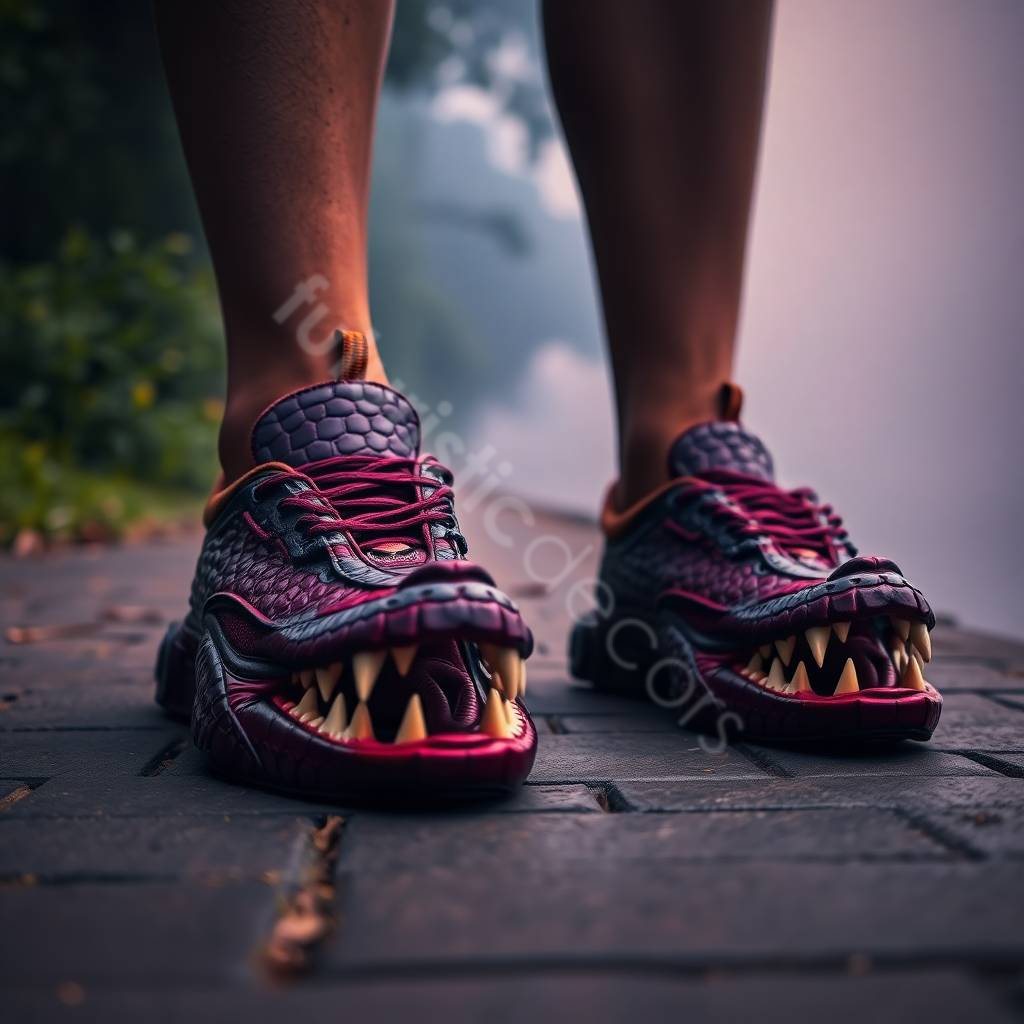
9.2 Caring for Realistic Textures
Dry Brushing: Use a soft-bristle brush to dislodge debris from between scales.
Specialized Leather Cleaners: Choose pH-balanced formulas designed for exotic leathers. Test in an inconspicuous area first.
Conditioning: Use a neutral, high-quality leather conditioner every 3–6 months to nourish fibers and prevent cracking.
Weather Protection: Apply a water-repellent spray to safeguard against rain and snow; reapply seasonally.
9.3 Storage Best Practices
Cool, Dry Environment: Avoid direct sunlight and heat sources.
Shoe Trees: Maintain shape and allow airflow.
Dust Bags: Use for premium models to prevent scratches and dust accumulation.
Proper care ensures that both faux leather and realistic-texture Crocodile Shaped Sneakers remain stunning and structurally sound for years.
10. Where to Buy Crocodile Shaped Sneakers
Finding authentic Crocodile Shaped Sneakers—whether faux or realistically textured—requires discerning between reputable retailers and fast-fashion knockoffs. Consider these avenues:
10.1 Luxury Boutiques and Designer Flagships
High-End Fashion Houses: Brands like Balenciaga, Versace, and Alexander McQueen occasionally release croc-inspired sneaker lines.
Specialty Concept Stores: Curated collections often include limited-edition artisan pairs.
10.2 Online Marketplaces
Official Brand Websites: Ensure authenticity and warranty coverage.
Authorized Retailers: Net-a-Porter, Farfetch, and MatchesFashion carry vetted selections.
Refer to similar product models: Click here
10.3 Direct-to-Consumer Startups
Vegan Sneaker Brands: Companies like VEJA, Rothy’s, and Native Shoes offer advanced faux leather croc-inspired designs.
Craft Artisan Platforms: Goldsmiths and independent cobblers occasionally sell bespoke realistic-texture models on Etsy or their own sites.
10.4 Secondhand and Consignment
Resale Platforms: StockX, Grailed, and The RealReal facilitate authenticated pre-owned exchanges—ideal for limited-edition realistic-texture pairs.
Local Consignment Boutiques: Often source rare designer releases at reduced prices, though sizes may be limited.
When shopping, verify material details, read customer reviews, and confirm return policies to ensure a satisfying purchase.
Conclusion: “Crocodile Shaped Sneakers”
Crocodile Shaped Sneakers epitomize the intersection of daring design and material innovation. Whether you gravitate toward budget-friendly faux leather editions or invest in exquisitely crafted realistic-texture models, understanding the nuances of each approach empowers you to select footwear that aligns with your aesthetic preferences, ethical stance, and performance needs.
- Faux Leather: Offers accessibility, cruelty-free credentials, and a kaleidoscope of colorways, albeit with potential trade-offs in longevity and tactile authenticity.
- Realistic Textures: Deliver unrivaled depth, natural patina development, and superior breathability, balanced by higher price points and ethical considerations surrounding animal-derived hide.
By weighing factors such as design fidelity, durability, environmental impact, and cost, you can confidently step into the world of Crocodile Shaped Sneakers and make a statement—literally and figuratively—wherever your journey takes you.
Whether you’re a trendsetting sneaker collector or a style-conscious everyday wearer, the perfect pair awaits: one that melds the primal power of reptilian motifs with the cutting-edge craftsmanship of modern footwear.


